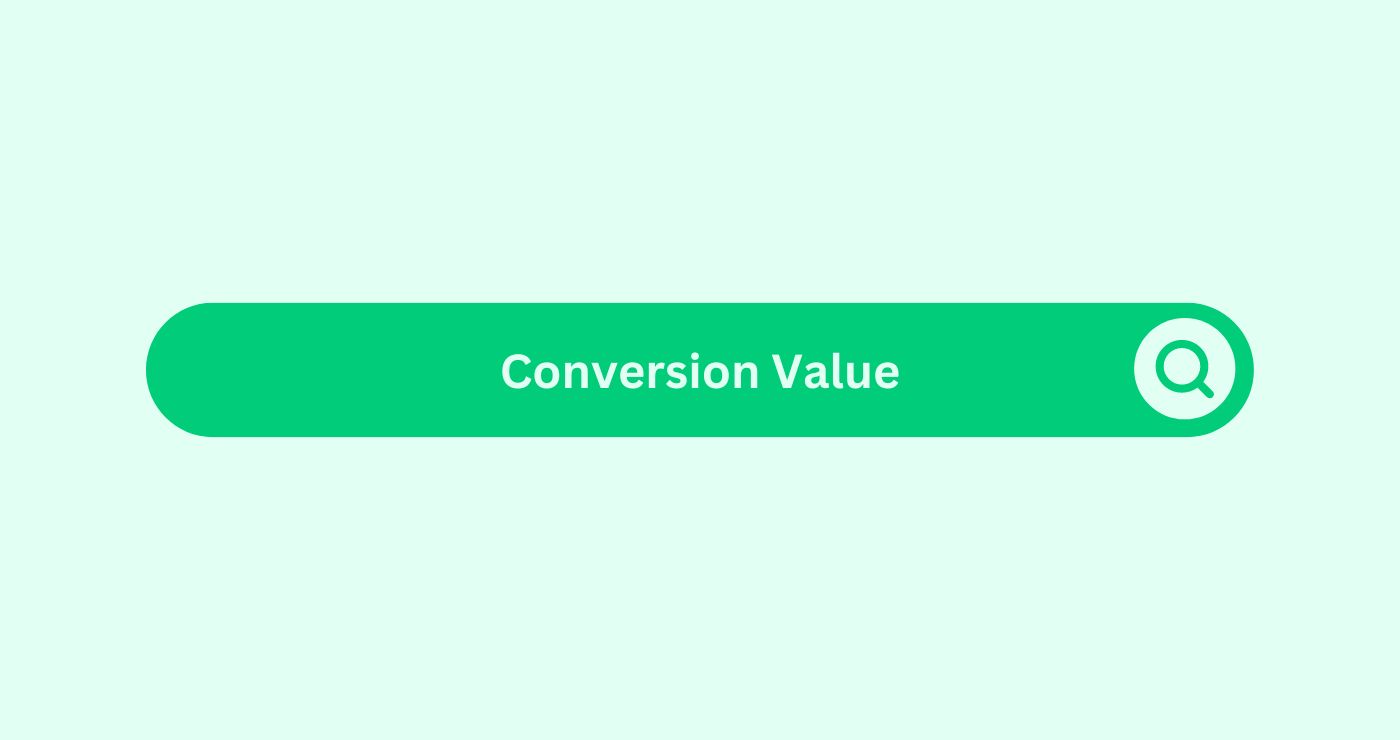Definition
ConversionDefinition In the realm of SEO, Conversion refers to the pro... value signifies the money from user actions on a site, like purchases or form completions, aiding ROI analysis for businesses.
How You Can Use
An e-commerce site can assign a conversionDefinition In the realm of SEO, Conversion refers to the pro... value to purchases, tracking and optimizing values for products and customer segments to target high-value customersDefinition Customers, in the context of SEO, refer to indivi... effectively.
Calculation
The conversionDefinition In the realm of SEO, Conversion refers to the pro... value can be calculated using the formula:
ConversionDefinition In the realm of SEO, Conversion refers to the pro... Value = Number of Conversions × Average Order Value
Where:
- Number of Conversions is the total number of completed actions or goalsIn the SEO space, "Goals" refer to specific, measurable obje....
- Average Order Value is the average monetary value of each conversionDefinition In the realm of SEO, Conversion refers to the pro....
Key Takeaways
- Monetary Representation: ConversionDefinition In the realm of SEO, Conversion refers to the pro... value monetarily reflects conversionDefinition In the realm of SEO, Conversion refers to the pro... impact, aiding accurate ROI measurement for marketing efforts.
- Performance Evaluation: Tracking conversionDefinition In the realm of SEO, Conversion refers to the pro... values helps assess marketing performance and revenue generation.
- Customer Segmentation: ConversionDefinition In the realm of SEO, Conversion refers to the pro... Value enables businesses to segment customersDefinition Customers, in the context of SEO, refer to indivi... based on their value and tailor marketing efforts to high-value segments for better ROI.
- Optimization Insights: Analyzing conversionDefinition In the realm of SEO, Conversion refers to the pro... values helps businesses identify opportunities to optimize conversionDefinition In the realm of SEO, Conversion refers to the pro... paths, product offerings, and pricing strategies to maximize revenue.
- Forecasting and Budgeting: ConversionDefinition In the realm of SEO, Conversion refers to the pro... value data can help businesses forecast future revenue, allocate marketing budgets effectively, and set realistic business goalsIn the SEO space, "Goals" refer to specific, measurable obje... based on expected returns.
FAQs
What is Conversion Value?
ConversionDefinition In the realm of SEO, Conversion refers to the pro... Value refers to the monetary worth assigned to a specific action or goal completed by a user on a website, representing the value generated from each conversionDefinition In the realm of SEO, Conversion refers to the pro....
How is Conversion Value calculated?
ConversionDefinition In the realm of SEO, Conversion refers to the pro... Value is calculated by multiplying the number of conversions by the average order value or average revenue per conversionDefinition In the realm of SEO, Conversion refers to the pro....
Can Conversion Value be different for each conversion action?
Yes, businesses can assign different conversionDefinition In the realm of SEO, Conversion refers to the pro... values to various actions or goalsIn the SEO space, "Goals" refer to specific, measurable obje... based on their importance and impact on revenue generation.
What factors can affect Conversion Value?
ConversionDefinition In the realm of SEO, Conversion refers to the pro... Value can be influenced by factors such as product pricing, order quantity, customer lifetime value, and average transaction value.
How often should Conversion Value be tracked and analyzed?
ConversionDefinition In the realm of SEO, Conversion refers to the pro... Value should be tracked and analyzed regularly, ideally in conjunction with other key performance indicators (KPIs)Definition Key Performance Indicators (KPIs) in social media..., to monitor the effectiveness of marketing efforts and optimize strategies accordingly.
Can Conversion Value be negative?
No, ConversionDefinition In the realm of SEO, Conversion refers to the pro... Value represents the positive monetary worth generated from conversions, so it cannot be negative.
Does Conversion Value include costs associated with acquiring customers?
No, ConversionDefinition In the realm of SEO, Conversion refers to the pro... Value typically does not include costs associated with customer acquisition. It focuses solely on the revenue generated from completed conversions.
Can Conversion Value vary across different marketing channels?
Yes, ConversionDefinition In the realm of SEO, Conversion refers to the pro... Value may vary across different marketing channelsDefinition Channels in the context of SEO refer to the vario..., campaigns, or customer segments based on their effectiveness in driving revenue.
Is Conversion Value the same as Conversion Rate?
No, ConversionDefinition In the realm of SEO, Conversion refers to the pro... Value represents the monetary worth of conversions, while Conversion RateDefinition Conversion Rate in the SEO space refers to the pe... measures the percentage of website visitors who complete a desired action.
How can businesses increase Conversion Value?
Businesses can increase ConversionDefinition In the realm of SEO, Conversion refers to the pro... Value by optimizing conversionDefinition In the realm of SEO, Conversion refers to the pro... paths, improving product offerings, enhancing customer experience, and implementing targeted marketing strategies to attract high-value customersDefinition Customers, in the context of SEO, refer to indivi....




